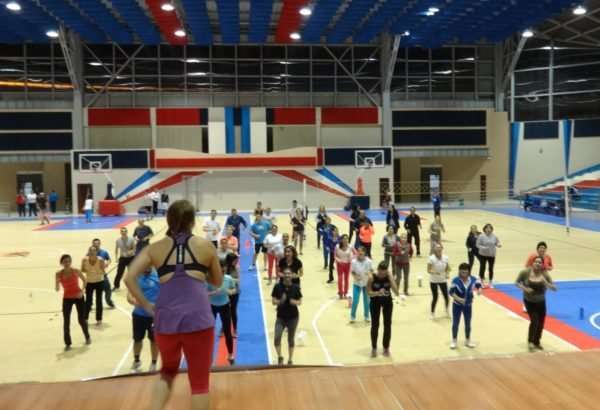Five weeks of Zumba improves the emotional health of inactive university workers

Scientists from the University of Granada (UGR) have proven that a five-week exercise program based on the Zumba fitness discipline improves the quality of life of inactive university workers, especially impacting the emotional aspect, and most of those improvements lasted for up to two months after the completion of the program.
The research, published in the Health Education Journal, involved inactive university workers. This research consisted of implementing a brief exercise intervention based on the famous fitness and wellness programs Zumba, with the aim of studying its impact on the participants' quality of life, both in the short and medium-term. UGR researchers Yaira Barranco Ruiz and Emilio Villa González led this pilot study for five weeks along with a team of international researchers from the National University of Chimborazo (Ecuador).
Currently, workdays in the public university consist of an eight-hour schedule with predominantly sedentary tasks, thus increasing total daily sedentary time and, therefore constituting a potential risk factor for the health of the workers. It is necessary to develop interventions for health improvements, the promotion of healthy life habits and the general quality of life through innovative and attractive exercise programs in that labor sector. Quality of life is a broad concept. Researchers consider it in eight important dimensions: social, emotional, physical state, physical pain, physical functioning, vitality, mental health and general health.
The physical exercise program was carried out three days a week at the end of the workday, through one-hour classes taught by a certified ZIN Zumba fitness instructor and graduate in physical activity and sports science. The experiment caused significant improvements in most quality of life dimensions. Moreover, even two months after the intervention ended, most of the subjects maintained levels above those recorded at the beginning of the program for all eight dimensions.
Moreover, according to Barranco and Villa, "It is interesting to note that the emotional dimension, which was the one with the lowest values at the beginning, was the one with the highest values at the end of the exercise program and, therefore, the one that experienced the greatest improvement."
The researchers of this pilot study have carried out a new, larger study, with an intervention of 16 weeks (corresponding to an academic semester), in which new variables related to the health of the participants have been analyzed. These variables include health-related physical condition, body composition, metabolic panel and nutritional habits.
More information: Yaira Barranco-Ruiz et al, A short dance-exercise intervention as a strategy for improving quality of life in inactive workers, Health Education Journal (2017). DOI: 10.1177/0017896917726575




















